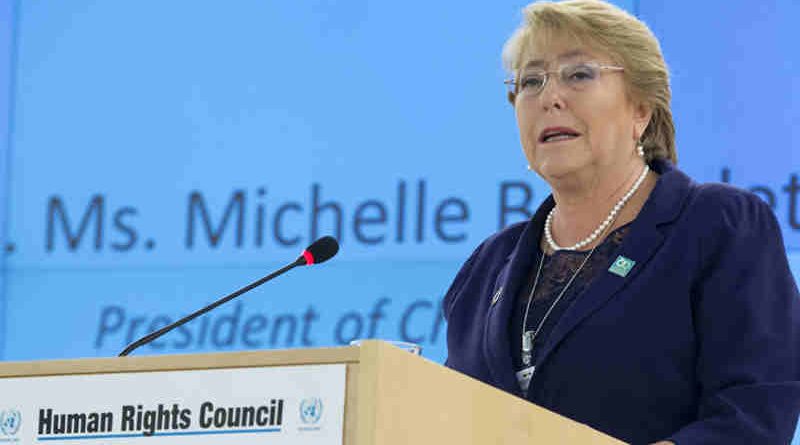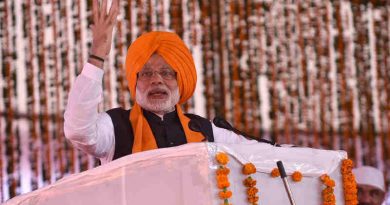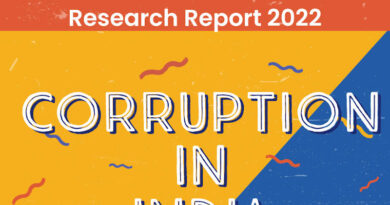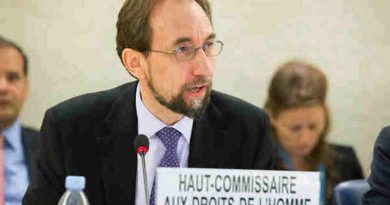UN Human Rights Chief Distressed over Sudden Coronavirus Lockdown in India
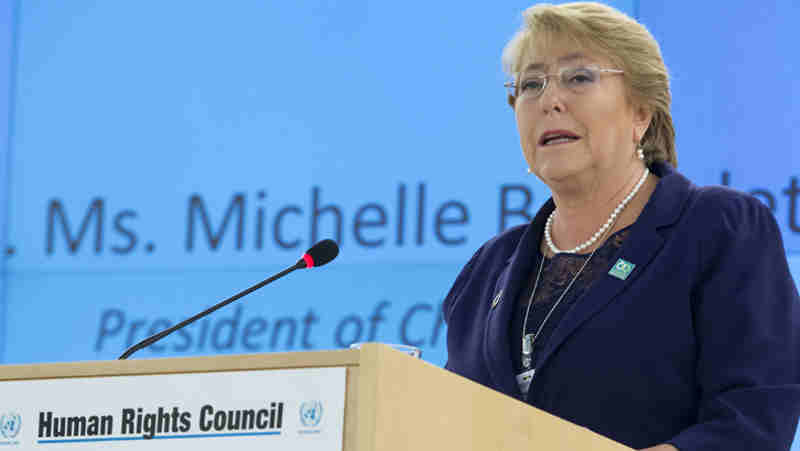
UN Human Rights Chief Distressed over Sudden Coronavirus Lockdown in India
The UN Human Rights chief Michelle Bachelet said Thursday (April 2) she was distressed by the plight of millions of internal migrants affected by the sudden announcement of a coronavirus (COVID-19) lockdown in India.
She welcomed subsequent measures to address their situation but noted that pervasive challenges remain. “The lockdown in India represents a massive logistical and implementation challenge given the population size and its density and we all hope the spread of the virus can be checked,” the High Commissioner for Human Rights said.
“It is nonetheless important to ensure that measures in response to the COVID-19 are neither applied in a discriminatory manner nor exacerbate existing inequalities and vulnerabilities,” she added.
As India’s Prime Minister (PM) Narendra Modi – who is an uneducated religious demagogue – is not trained to handle any area of governance, he had announced a sudden lockdown for 21 days on March 24, without giving any time to the people to prepare for the hardships.
While the Modi government failed to plan and implement the lockdown, hundreds of thousands of poor migrant workers are leaving the cities to go to their native places while the lockdown is in progress. As they defied the social distancing guidelines, millions of people in India will get infected with coronavirus for which Modi alone is responsible.
Also Read:
[ No Protection for Indian Doctors, Use Raincoats and Helmets to Treat Coronavirus Patients ]
[ Modi Model Not Working. Coronavirus to Hit 300 Million Indians: Expert ]
[ Coronavirus: When Tali and Thali Failed, Modi Asks People to Starve ]
[ WHO Chief Says Lockdown Alone Won’t Help. India May Have 1.3 Million Coronavirus Cases ]
[ Coronavirus: Delhi Govt Must Ban Construction and Sanitize Housing Societies ]
[ Coronavirus Management: Great Leaders vs. Narendra Modi ]
“Following the announcement of the lockdown to limit the spread of COVID-19, many impoverished migrants were left without work and unable to pay for their rent and food. Without the ability to sustain themselves in urban centers and in light of the almost complete shutdown of public transportation, hundreds of thousands of migrant men, women, and children were forced to walk hundreds of kilometers trying to reach their villages and home States. Some have died making the journey,” said Ms Bachelet in her statement.
On 29 March, in an effort to contain the spread of the virus, the Ministry of Home Affairs issued an order to States to intercept migrants on their way home and require them to enter quarantine for a two-week period.
The High Commissioner welcomes the Supreme Court of India’s subsequent instruction on 31 March to ensure that migrants are provided enough food, water, beds and supplies as well as psychosocial counseling in shelters that should be run by volunteers instead of security forces, and that they should be treated in a humane manner.
“The Supreme Court’s order and its implementation will go a long way to ensuring the safety and rights of these vulnerable migrants. Many of these people’s lives have been suddenly uprooted by the lockdown, placing them in very precarious situations,” Ms Bachelet said.
Earlier this week, reports and images emerged of police officers beating people, including migrants, with batons for breaking quarantine rules and returning migrants being doused with disinfectant.
“We understand the strains on police services at this time, but officers must show restraint and abide by international standards on the use of force and humane treatment in their efforts to respond to this pandemic, in accordance with the Supreme Court’s instruction,” Ms Bachelet suggested.
🇮🇳#India: UN Human Rights Chief @mbachelet distressed over plight of millions of internal migrants affected by the lockdown. She welcomes measures taken to limit #COVID19 impact but pervasive challenges remain 👉 https://t.co/uZLkevTM5V pic.twitter.com/YxJf60ynMf
— UN Human Rights (@UNHumanRights) April 2, 2020
The High Commissioner also expressed regret at measures that have the effect of stigmatizing sections of society, including migrants, such as the practice in some States of stamping hands of those quarantined in their homes, reportedly to ensure that they stay home, and sticking notices outside the homes of people quarantined.
“It is important to weigh such measures against the right to privacy and avoid measures that would unduly stigmatize people within the community, who may already be vulnerable due to their social status or other factors,” Ms Bachelet said.
Containing COVID-19 in the country that hosts one-sixth of the world’s population will require efforts not only by the Government, but also the population at large. The High Commissioner encouraged the Government to work shoulder-to-shoulder with civil society on the response – including many NGOs who are already providing relief.

